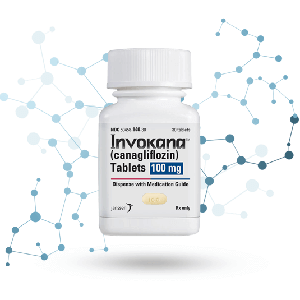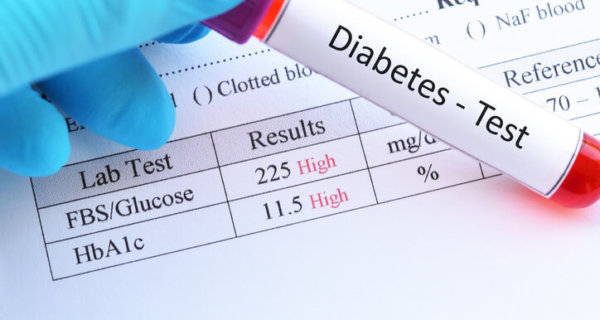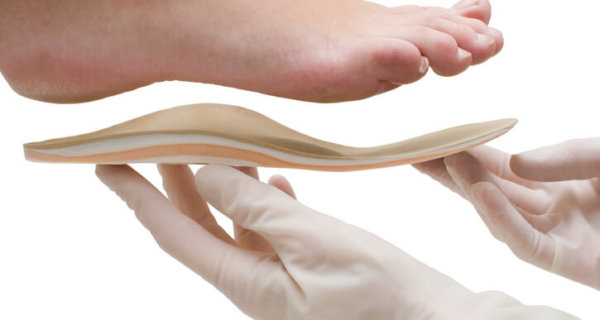Invokana Overview
 Many type 2 diabetes patients use diet and exercise to help regulate their glucose levels. However, some may also need prescription medication to help control blood sugar if it’s already dangerously high. In March 2013, Invokana™ became the first oral SGLT2 inhibitor diabetes medication approved by the Federal Drug Administration. Initial Invokana clinical trials showed that women were prone to suffering from the most common side effect — urinary tract infections. Since diabetes currently affects 29.1 million Americans, consumers and health professionals alike eagerly embraced the newest blood sugar drugs. We’ll explain the risks and recent study results in our Invokana overview below.
Many type 2 diabetes patients use diet and exercise to help regulate their glucose levels. However, some may also need prescription medication to help control blood sugar if it’s already dangerously high. In March 2013, Invokana™ became the first oral SGLT2 inhibitor diabetes medication approved by the Federal Drug Administration. Initial Invokana clinical trials showed that women were prone to suffering from the most common side effect — urinary tract infections. Since diabetes currently affects 29.1 million Americans, consumers and health professionals alike eagerly embraced the newest blood sugar drugs. We’ll explain the risks and recent study results in our Invokana overview below.
But by June of 2015, Invokana adverse event reports were flooding into the FDA. One serious Invokana health complication that’s otherwise rare in type 2 diabetes patients is ketoacidosis, which can result in death. Due to diabetic ketoacidosis, kidney damage, heart attack, stroke and other serious injuries while taking Invokana, several lawsuits are now pending.
Invokana Overview: How SGLT2 Inhibitor Drugs Work
Invokana belongs to a newer class of drug known as SGLT2 inhibitors. “SGLT” stands for “sodium glucose co-transporter,” and “2” refers to the specific transporter responsible for glucose reabsorption in the kidneys. Invokana and other SGLT2 inhibitors work by blocking glucose from being reabsorbed into the kidneys. Instead, blood sugar travels to the bladder and is eliminated from the body through urine.
Unfortunately, excessive glucose passing through the bladder can cause recurrent urinary tract infections. If these infections become frequent as well as serious, kidney failure may result. Dehydration’s another Invokana side effect that can eventually cause serious health complications, including ketoacidosis and blood clots. For this reason, many patients filing Invokana lawsuits accuse the drug’s manufacturer, Johnson & Johnson, of negligence.
Invokana Overview: Commonly Reported Side Effects
The most frequently reported Invokana side effects are yeast infection, urinary tract infection, and changes in urination (i.e., frequency, amount, and urinating more at night). More serious Invokana health complications may also include:
- Dehydration due to the loss of body water and salt
- Kidney problems
- Vaginal yeast infection
- Yeast infection of the penis
- Ketoacidosis
- Risk of bone fracture
- Potentially serious urinary tract infections
- High potassium in the blood (hyperkalemia)
- Increases in cholesterol
- Hypoglycemia (low blood sugar)
If you experience dizziness, sweating, nausea, vomiting, increased heartbeat, confusion, irritability or drowsiness while taking Invokana, contact your doctor immediately.
Invokana Overview: FDA Warnings, Statements, and Timeline
Due to receving many significant adverse event reports, FDA issued warnings and updates related to SGLT2 inhibitor drugs (including Invokana).
- May 18, 2016 – Interim clinical trial results for diabetes medicine canagliflozin (Invokana, Invokamet) show increased risk of leg and foot amputations, but mostly affecting the patient’s toes.
- December 2015 – FDA updates all SGLT2 inhibitor drug labels to emphasize the risks for too much acid in the blood and serious UTI infections. Between March 2013 and May 2015, 73 patients developed ketoacidosis while taking SGLT2 inhibitors.
- May 2015 – The FDA issues a safety warning against SGLT2 inhibitors regarding the increased ketoacidosis risk.
- June 2014 – The FDA’s Adverse Event Reporting System (FAERS) receives 20 complaints about ketoacidosis caused by SGLT2 inhibitor drugs.
Consumers filing injury claims say that J&J subsidiary company Janssen knowingly withheld information about Invokana’s potential for negative side effects. In fact, these FDA warnings may play a role in influencing court juries hearing Invokana injury trials going forward.
Invokana Overview: MDL Consolidation Granted In Some, Not All, Cases
Jennifer Anzo filed the first Invokana lawsuit in October 2015. Since then, many similar claims were filed by patients suffering serious Invokana health complications across the U.S. In December 2016, the JPML ordered Anzo’s case consolidated into one MDL scheduled for trial in New Jersey. Significantly, the judicial panel chose to exclude claims filed for other SGLT2 inhibitor drugs like Farxiga®, Xigduo XR or Jardiance®. (Some of these medications include SGLT2 inhibitors combined with other diabetes drugs, such as metformin.) No Invokana bellwether trials have yet been selected. However, those cases should set the tone for future rulings, and may also influence cases involving other SGLT2 inhibitor drugs.
Check eligibility for compensation.
If you or a loved one suffered from serious health complications or even death while taking Invokana, you may be entitled to compensation from the manufacturer. Request your free case evaluation now to see if you may qualify.
Lori Polemenakos is Director of Consumer Content and SEO strategist for LeadingResponse, a legal marketing company. An award-winning journalist, writer and editor based in Dallas, Texas, she's produced articles for major brands such as Match.com, Yahoo!, MSN, AOL, Xfinity, Mail.com, and edited several published books. Since 2016, she's published hundreds of articles about Social Security disability, workers' compensation, veterans' benefits, personal injury, mass tort, auto accident claims, bankruptcy, employment law and other related legal issues.




